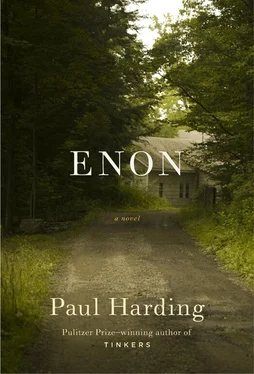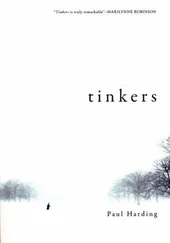“Are those your children?”
“Yes. Those are my children,” the man said.
“They are beautiful.”
The man said, “Thank you.”
“How old are they? Two and eight, or so?”
“My son is now five and my daughter is eleven.” The pictures were old, then, I thought.
“Do they go to school here?” I asked.
“They are in India, with my wife.”
I finished filling the first cup. I put a cap on it and began filling the second.
“Are your kids finishing up the school year before they move here?” I asked.
“I am saving up money so that they can move here,” the man said. I understood that the man’s situation was bad. I felt terrible suddenly for trying to win him over with pleasing small talk about his kids and bringing up a painful situation instead. But, I thought, the pictures are facing out and that must mean that he wants people to know about his family.
“Are they coming soon? Have you been away from them long?” I asked. I figured that I might as well show concern. I had real concern now, in fact, and there was no reason not to show it, I guessed. The guy couldn’t think any worse of me, anyway.
“I do not know when they can come. I have not seen them in three years,” he said.
“Oh, man,” I said. “That’s awful.” The second cup was full. I put a lid on it and placed it next to the other full cup and started pumping coffee into a third. The coffee was scalding hot, even through the paper of the cup, and I had to keep letting go of it to cool my hand off. It smelled sour and acidic.
“I’m sorry,” I said. I took a step toward the register and offered my right hand toward the man. “My name is Charlie,” I said. “Charlie Crosby.” The man shook my hand, limply, not because he lacked backbone or character, which was what I’d always been told by my grandfather a limp handshake indicated. (“Don’t offer a wet noodle,” he’d say. “Don’t try to break someone’s hand, either, especially a woman’s. But be firm, outgoing, confident. It makes a good first impression.”) I guessed he offered such a poor handshake because it was not something to which he was fully accustomed. I hoped that I hadn’t offended him. I felt like an idiot for worrying that I’d offended him and for thinking vaguely ignorant things like maybe in his culture people thought shaking someone else’s hand was unsanitary or demeaning. Too late now, I thought. I might as well just plunge forward, in good faith.
“I am Manprasad,” he said.
“Manprasad,” I said. “What are your children’s names?” Again I cringed, for thinking both that maybe it was rude to ask something so intimate of a stranger as the names of his children and that I was pathetic for making up such possibly insulting things about Indian culture, which I suddenly regretted not having read more about at some point in my life. Twenty-plus years as a reader’s reader , I thought, and not a page about India. It’s only one of the most important cultures on the planet, I thought. I’ve read libraries full of books about Enon and New England and next to nothing about the experiences of the vast majority of other souls on this planet, who have never even heard of New England, never mind this insignificant self-important spot of a village, as I suddenly thought of it. I imagined how this guy would have never heard of Enon when he’d been a kid, either, and yet it had always been where he was going to end up, stuck behind a cash register, scrounging for enough money to be with his family. I wondered what the opposite would have been like for myself — what obscure little village somewhere in the middle of India waited for my miserable and astonished arrival? None, of course, I thought, since what had always awaited me was the loss of my daughter and the suffering afterward.
Manprasad leaned forward and ducked his head under the cigarette rack and pointed up at the picture of his son. “That is Swapnil.” He pointed to the picture of his daughter. “And that is Anandita.”
“What beautiful names, Mansaprad,” I said.
“Manprasad,” Manprasad said.
“Argh! I mean, Manra—”
“Manny,” Manprasad said. “I am called Manny.”
“Manny,” I said. “Your children have beautiful names.” I finished filling the last of the cups and brought them in pairs to the counter. “Can I have three soft packs of Reds, too?” Manny pulled three packs of cigarettes down from the rack. I was about to ask Manny more about his kids, but I felt strange, as if he might wonder what my motives were. I wanted to show him that I was just interested as a fellow parent. Before I thought it out, I said, “I have a daughter a little older than your daughter’s age.”
Manny said, “That is very nice.” He tapped the prices of the coffees and the cigarettes into the cash register.
“Well, had,” I said, wanting nothing more at that moment than to be safely back on my couch, smoking, savoring the flood tide of the next dose of pills, savoring the anticipation of narcotic peace. “I had a daughter. Kate. But I lost her about a year ago. About”—I counted—“about seven months ago, actually.” I was shocked that it was only seven months. It felt like years already, like I’d been in mourning for years.
“I am sorry for your loss,” Manny said.
“Ah, it’s all right—” I almost called him “man” again, which seemed as if it could have been a further contraction of his name in a different life — Manny truncated to Man after, say, years of cordiality had deepened into a real friendship between us. The image of Manny and me sitting on milk crates across from each other, behind the cash register, playing cribbage all day and talking in the shorthand we’d settled into over the years, and laughing and breaking whenever he had to ring up a customer.
“That is thirty-one dollars and fifty cents,” he said, and instead of the picture of us being friends and him helping me get through the grief of losing Kate and me helping him wait out the arrival of his wife and children, I found myself irritated at his reserve. Good for you, Crosby, I thought. So now he’s the inscrutable Indian. All the better; he’s not even that kind of Indian. You’ve managed a two-for-one special on bigotry. I pulled the plug of old, dirty ones and fives I had in my pants pocket and started to count out the money. I felt awful for ruining both of our days. What knowing creature, passing overhead, able to see the two of us through the roof of the Red Orchard, standing there, face-to-face, exchanging money and coffee and tobacco, wary, suspicious, provoked, could look down and see us for our better selves?
I had only twenty-two dollars and thirty-five cents.
“I’m sorry, man — Manny,” I said. “I thought I had more. Or the stuff would be less. Um, how much are the generic cigarettes, the red ones?”
“Four seventy-nine. Five for twenty.”
“Okay, I need to give you these other smokes back and can I get three of those?”
“Yes, very well.”
I noticed the piles of newspapers. I realized I had lost track of all current events — local, national, international, all of it. Next to the Boston papers was the latest copy of Enon’s weekly newspaper, The Daily Bread . The cover story was about the prizewinning garden owned and tended by a local woman whose yard I had taken care of for a brief time several years earlier. Her name was Wallace. I had the urge to study the paper, to read all of the local tidbits and details about town meetings and library events and bake sales and the police blotter — all of the current village minutiae, attached to familiar names. I took a copy of the paper and put it on the counter.
“This, too,” I said. “And can I get a box or something to carry the coffees in?”
Читать дальше












